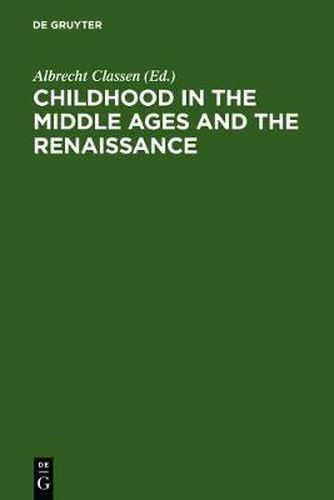Readings Newsletter
Become a Readings Member to make your shopping experience even easier.
Sign in or sign up for free!
You’re not far away from qualifying for FREE standard shipping within Australia
You’ve qualified for FREE standard shipping within Australia
The cart is loading…






Earlier theses on the history of childhood can now be laid to rest and a fundamental paradigm shift initiated, as there is an overwhelming body of evidence to show that in medieval and early modern times too there were close emotional relations between parents and children. The contributors to this volume demonstrate conclusively on the one hand how intensively parents concerned themselves with their children in the pre-modern era, and on the other which social, political and religious conditions shaped these relationships. These studies in emotional history demonstrate how easy it is for a subjective choice of sources, coupled with faulty interpretations - caused mainly by modern prejudices toward the Middle Ages in particular - to lead to the view that in the past children were regarded as small adults. The contributors demonstrate convincingly that intense feelings - admittedly often different in nature - shaped the relationship between adults and children.
$9.00 standard shipping within Australia
FREE standard shipping within Australia for orders over $100.00
Express & International shipping calculated at checkout
Earlier theses on the history of childhood can now be laid to rest and a fundamental paradigm shift initiated, as there is an overwhelming body of evidence to show that in medieval and early modern times too there were close emotional relations between parents and children. The contributors to this volume demonstrate conclusively on the one hand how intensively parents concerned themselves with their children in the pre-modern era, and on the other which social, political and religious conditions shaped these relationships. These studies in emotional history demonstrate how easy it is for a subjective choice of sources, coupled with faulty interpretations - caused mainly by modern prejudices toward the Middle Ages in particular - to lead to the view that in the past children were regarded as small adults. The contributors demonstrate convincingly that intense feelings - admittedly often different in nature - shaped the relationship between adults and children.